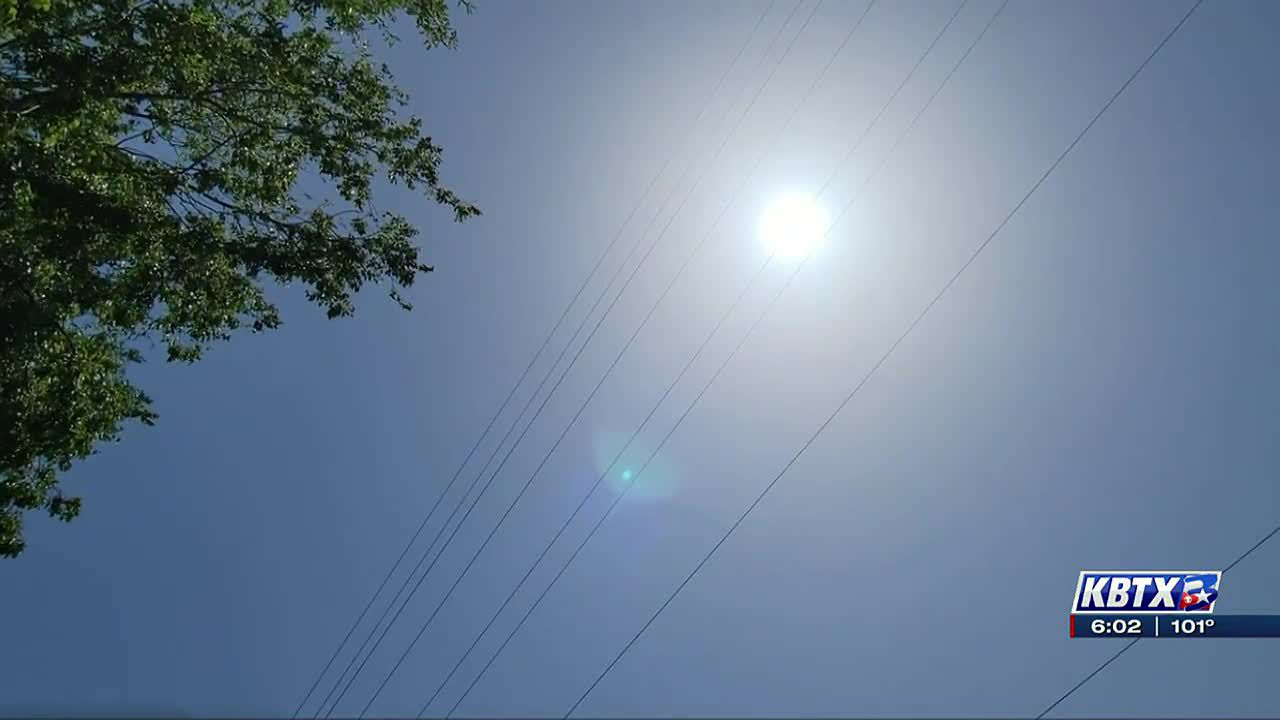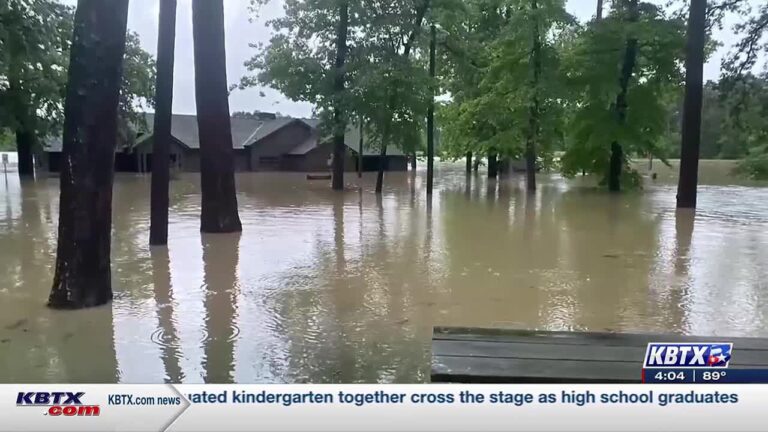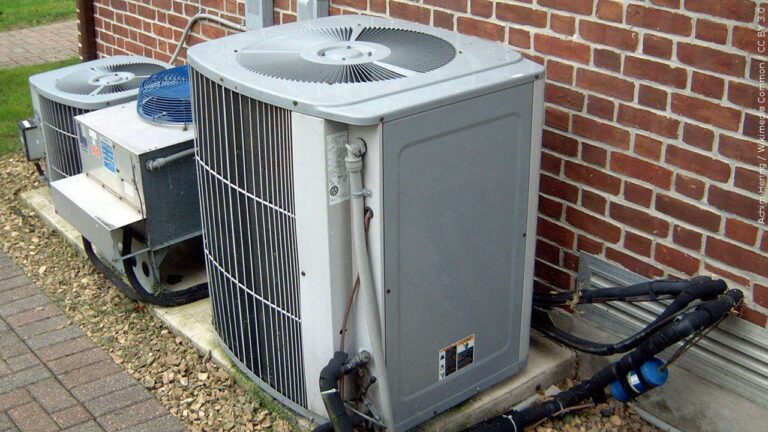Helpful tips for outside workers during summer heatwave
BRYAN, Texas (KBTX) – Across the Brazos Valley the temperature continues to increase. While many people are finding ways to cool off by staying inside, it’s difficult for those who work outside or who are outside often.
The heat can be brutal for lawn care workers, those working on roofs, or construction workers on the roads. It’s something that Josh Schulte, owner of Schulte Roofing knows all too well himself. Schulte said lately jobs that would have taken half the time to complete in the spring are now taking twice as long due to the heat.
Some materials used for roofs reflect heat and other materials absorb it, making the heat even more difficult to deal with, Schulte said.
“An asphalt shingle roof absorbs a lot of heat so you feel that heat from the bottom up and I can tell you from personal experience I’ve literally had the soles of my shoes melted off working on a roof and it’s not uncommon for that to happen,” Schulte said. “We really really try to make everyone take their breaks.”
Schulte Roofing already has precautions in place to make sure its workers are protected from heat-related illness, Schulte said.
“We offer all of our people bottled water, we have an ice machine in our office where they can load up on ice throughout the day, we encourage our people to take breaks,” Schulte said.
Medical Staff at HealthPoint said that about three out of every four people who work outdoors will likely suffer from heat stroke.
“Because they’re not drinking enough fluids,” HealthPoint family nurse practitioner, Misty White said. “The majority of my patients come in and they say they’re drinking two or three bottles of water a day, but they really need to be drinking six to eight bottles of water a day when they’re out in that kind of heat.”
Those who are at a higher risk of having heat stroke involve the elderly, children, people on certain medications, those with heart conditions and diabetes and those who take diuretics, White said.
“The biggest things that you’re going to have to watch for are headache, stopping sweating, nausea,” White said. “If you get to the point of stopping sweating it’s already too late.”
Along with drinking plenty of water White recommended limiting time outside in the heat of the day.
“Midday to about four o’clock are going to be those hours you don’t want to be outside just because the heat is going to be intense,” White said. “If you have to be outside during those hours try to limit the amount of time to just one or two hours.”
For those working outside, Schulte suggested they wear breathable footwear.
“Believe it or not when your feet are trapped in something really hot it can increase your body temperature,” Schulte. “I’ve noticed personally out in the heat with closed footwear, the more closed up it is the more danger you can get in.”
For those who might have heat stroke or are around someone who might, White suggests moving to the shade or inside to cool off with air conditioning. They should also start drinking fluids.
“If you notice they have stopped sweating and they’re complaining of nausea or headache go ahead and call 9-1-1 your not overreacting, let them be examined by paramedics,” White said. “If someone starts vomiting and they pass out, check for a pulse. If they’re not breathing, they don’t have a pulse initiate chest compression then after the first round call 9-1-1.”







